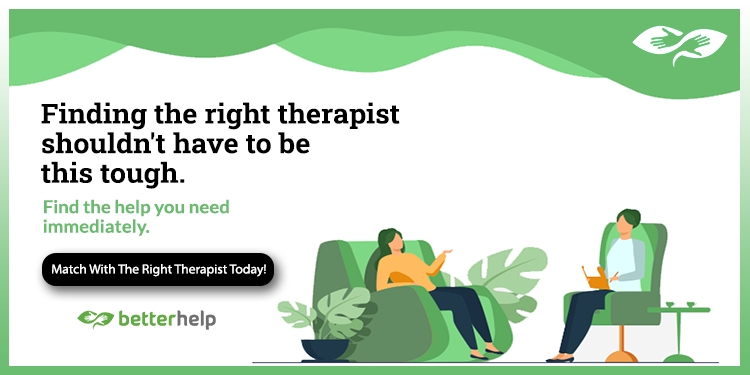You Don’t Have to Be in Crisis to Deserve Support
Healing Your Relationship with Support: Reframing Help as a Normal Need
Do you find yourself waiting until you’re completely overwhelmed before seeking help? Perhaps you minimize your struggles, telling yourself they’re not “bad enough” to warrant support. Maybe you compare your challenges to those facing others, concluding that your needs don’t qualify as sufficiently serious to justify attention. Or perhaps you pride yourself on handling things independently, seeking assistance only when you’ve exhausted every possible self-help strategy and reached a breaking point.
If these patterns sound familiar, you’re experiencing a specific belief system about worthiness for support—one that makes care contingent on crisis rather than recognizing it as a fundamental human need regardless of circumstance.
The Origins of the High Threshold for Support
This threshold for deserving help rarely develops randomly. It typically forms through experiences where support was indeed limited, conditional, or came with significant costs. Perhaps you grew up in an environment where resources—whether material, emotional, or attentional—were genuinely scarce, creating the reality that only the most serious needs could be addressed. Maybe you received consistent messages that independence and self-sufficiency represented maturity and strength, while needing help indicated weakness or failure. Or perhaps your genuine needs were repeatedly dismissed or compared unfavorably to others’ struggles, teaching you that support must be earned through demonstrable suffering rather than being a legitimate aspect of human connection.
The Physical Manifestations of High Support Threshold
Your body holds this high threshold for support in specific ways. You might notice a characteristic physical bracing or tension—muscles chronically engaged in the effort of handling everything independently rather than allowing the relaxation that comes with shared responsibility. Perhaps you experience the somatic manifestations of accumulated stress long before you consider seeking help—sleep disturbance, digestive issues, or persistent tension headaches that you continue to manage alone despite their impact. You might find yourself physically isolating during difficult periods, literally creating distance that mirrors your reluctance to invite support. These physical patterns aren’t random but reflect how deeply the belief that help requires crisis has become embodied in your way of being.

The Cycle of Crisis-Driven Help-Seeking
The most painful irony of this pattern lies in how it creates precisely the crises it requires for support. When you consistently delay seeking help until you’re completely overwhelmed, you inadvertently create situations where minor challenges escalate into major problems, manageable stress accumulates into burnout, and preventative support becomes crisis intervention. This creates an exhausting cycle where help finally comes but at significantly greater cost to both yourself and those offering support, reinforcing the unconscious belief that assistance involves suffering rather than prevention or healthy interdependence.
The Cultural Validation of Independence
What makes this pattern particularly difficult to recognize as problematic is how frequently our culture normalizes and even celebrates it. We often admire those who “handle everything themselves,” praise people who “never complain” despite legitimate struggles, and frame independence as more virtuous than interdependence. This cultural context provides constant external validation for delaying support, making it challenging to recognize this approach as a conditioned belief system rather than simply responsible adult behavior.
Healing Exercises for Reframing Support-Seeking
Healing Exercise #1: The Support Threshold Awareness Practice
For two weeks, notice and document instances where you need or could benefit from support but hesitate to seek it. For each situation, explore: What specifically do I need help with? What stops me from seeking this support? What would make this need “serious enough” to warrant assistance? What might happen if I sought help before reaching crisis? This detailed tracking helps identify your specific patterns and beliefs around deservingness for support, bringing awareness to assumptions that may operate outside conscious recognition.
Somatic Experiencing and a car accident
Healing Exercise #2: The Graduated Support Request Experiment
Many people who delay seeking help benefit from intentionally practicing smaller support requests before they’re in crisis. Create a “support ladder” with ten rungs from minimal, low-stakes requests (perhaps asking someone to pass an item just beyond your reach or seeking a simple piece of information) to more significant forms of support (sharing emotional struggles, asking for substantial help with important tasks). Begin practicing at the lowest, most comfortable level, noticing your internal response to both making requests and receiving assistance. This graduated approach helps your nervous system recognize that support can be exchanged without crisis, building the neural pathways for appropriate interdependence.
Healing Exercise #3: The Support Cost-Benefit Analysis
Our beliefs about help-seeking often develop without conscious examination of their actual impact. Create a comprehensive assessment of how your current threshold for support affects different areas of your life. Make two columns: “Costs of Delaying Support” and “Benefits of Earlier Support.” Under costs, consider how waiting affects your physical health, emotional wellbeing, relationship quality, work effectiveness, and available solutions. Under benefits, explore what might be possible if you sought help earlier—perhaps preventing crises, maintaining consistent wellbeing, developing deeper connections, or having more options available. This analysis helps clarify the tangible impact of your current approach, potentially motivating change based on practical outcomes rather than abstract shoulds.
Developing a Healthier Relationship with Support
Healing your relationship with support involves understanding the crucial difference between appropriate self-reliance and isolation that ultimately serves no one. Genuine resilience involves not the absence of need but the capacity to recognize needs and seek appropriate resources—sometimes from within, sometimes from others, depending on the specific situation. This important distinction helps transform help-seeking from a last resort during crisis to a normal aspect of human interdependence, one that reflects wisdom about our inherent interconnection rather than inadequacy or failure.
Somatic Practices to Support Change
Your physical practices significantly impact your capacity for appropriate support-seeking. Many who delay assistance have developed somatic patterns of rigid self-containment—chronic muscle tension that literally holds their experience within rather than allowing the natural expansion and contraction of giving and receiving. Practices that invite physical release, receptivity, and flow—perhaps gentle stretching focused on areas of habitual tension, conscious relaxation of chronically engaged muscles, or movement that emphasizes receiving support from the ground or environment—help create bodily experiences of being held rather than constantly holding. As your body experiences the relief of appropriate support, your emotional and relational patterns naturally begin to shift as well.
Navigating Relationship Dynamics as You Seek Support
Relationships inevitably change as you adjust your threshold for support, though not always in expected ways. While you might fear that seeking help before crisis would burden or alienate others, many people actually experience relief when those they care about invite support earlier rather than waiting until situations become emergencies. This shift from crisis intervention to prevention or early assistance often creates more sustainable, reciprocal relationships where support flows more naturally in both directions, relieving rather than intensifying the very burden you might fear creating.
Conclusion: Gradual Healing Through Self-Compassion
Remember that healing your relationship with support happens gradually through consistent practice and self-compassion. Your high threshold for help-seeking likely developed for important reasons—adapting to environments where resources were genuinely limited, protecting yourself from potential rejection or judgment, or developing legitimate self-reliance in contexts where it was necessary. Honoring the intelligence of these adaptations while gradually establishing new patterns creates a more sustainable approach to interdependence—one that recognizes support not as something earned through sufficient suffering but as a normal, healthy aspect of human connection available throughout the continuum of experience rather than exclusively during crisis.

Keywords: Crisis, polyvagal theory, gestalt therapy, psychotherapy, parents, parental trauma, somatic experiencing, Licensed therapist near me in Manhattan NYC, Affordable therapy services in New York State, Holistic psychotherapy sessions in NYC, Somatic Experiencing therapy for trauma recovery in New York City, NARM therapy in Brooklyn, Licensed couples therapy in Manhattan, Gestalt therapy near me in NYC, Marriage counseling in Queens NYC, Therapy for anxiety treatment in NYC, Experienced psychotherapist in New York, Licensed psychotherapist near me in NYC, Somatic Experiencing therapy sessions in New York, Trauma therapy and counseling in Manhattan, Gestalt therapy sessions in New York City, Therapy sessions for emotional regulation in New York, Trauma therapy near me in Brooklyn New York, Licensed mental health therapist in Manhattan NYC, Depression therapy in New York, New York City therapist experienced in PTSD treatment
Contact us: Feel and Heal Therapy Office
For companies: Creative Manager
Psychosomatics vol.5 – Liver – What does the body tell us?








